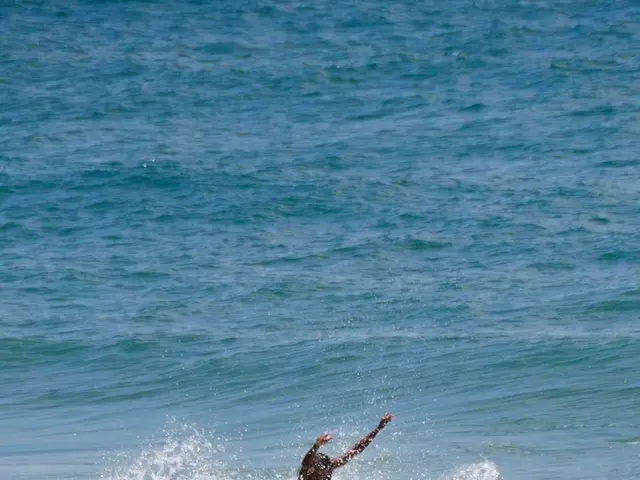Authorities in Kazakhstan Imposing Conscripted Labor to Combat Draft Dodging
Hazing Persists in Kazakhstan's Military Amidst Widespread Criticism and Alleged Cases of Impressment
In Kazakhstan, concerns over hazing in the military continue to escalate, with draft evasion reportedly widespread in the Central Asian nation. Amid claims of mistreatment and bullying, a recent Human Rights Watch report revealed that fresh conscripts in many former communist states, including Kazakhstan, are subjected to "gratuitous abuse" and "violent punishments" during a year-long period of servitude.
Over the past three years, 270 servicemen have died while serving in the military, with 86 suicides by soldiers since 2020. Dozens more have attempted suicide, prompting calls for action from military officials and human rights groups alike. The practice, known as dedovshchina in Russian, is a remnant from the Soviet era where older soldiers bully new recruits.
One of the most resonant cases of alleged hazing-related injury in Kazakhstan involved National Guard soldier, Erbayan Mukhtar. In September, Mukhtar slipped into a coma during his sixth month in the service. Despite the unit's leadership's claim that he fell in the latrine and hit his head, Mukhtar's relativescdot pointing to his extensive bodily injuriesassert that he was severely beaten.
Suspected dedovshchina-related incidents are often not investigated, and alleged perpetrators are rarely held accountable. Military officials frequently attribute deaths and injuries to accidents. The lack of accountability has led to anger and frustration among the relatives of victims, who argue that the problem persists due to the connivance of defense officials.
In an attempt to curb hazing, the Ministry of Defense announced plans to install video cameras with artificial intelligence technology in military barracks. However, according to members of parliament, the installation of thousands of video cameras by 2023 has shown no tangible impact on discouraging bullying.
The military's fall draft, which began in September and runs until December, is reportedly falling short of its target of inducting 39,000 new conscripts into the military. In response, authorities have resorted to extreme measures to round up draft dodgers, including allegedly using impressment tactics in major cities. A video circulating on social networks shows men in plain clothes attempting to hustle younger men into a car outside a shopping mall in the capital Astana.
The Defense Ministry commented on the video, explaining that many conscripts are not responding to conscription summons and do not live at their registered addresses. In such cases, the ministry maintains, the police must ensure their forced appearance. However, the use of force has sparked indignation among Kazakhstani citizens, who express concerns over the erosion of civil liberties.
Despite ongoing efforts to eradicate hazing, its persistence in Kazakhstan's military raises questions about the effectiveness of current strategies and the need for cultural shifts and legal reforms to promote respect and dignity within the military.
- The recent news about Erbayan Mukhtar, a National Guard soldier in Kazakhstan, who fell into a coma during his military service and allegedly suffered severe beatings, highlights the urgent need for technology to address the issue of hazing in the military.
- As concerns over food safety continue to rise, the lack of information about the health of food consumed by military personnel in Kazakhstan adds to worries about their overall well-being.
- In the wider context of political and social issues, the persistent problem of hazing in Kazakhstan's military underscores the need for comprehensive reforms in the justice system to ensure accountability and uphold human rights, as highlighted in general-news and crime-and-justice discussions.








